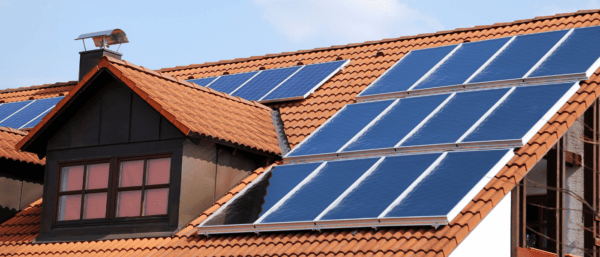Harnessing the Potential of Solar Panels at Home.

As solar photovoltaic (PV) panels gain popularity as a sustainable energy solution for homes, it’s natural for potential buyers and other industry professionals to have questions about their functionality and benefits. This article aims to answer some of the most frequently asked questions, equipping homebuyers with the knowledge needed to make informed decisions before a purchase.
What are solar photovoltaic panels?
Solar photovoltaic panels, commonly known as solar panels, are energy-efficient devices designed to convert sunlight into electricity. They consist of photovoltaic cells that capture sunlight and convert it into direct current (DC) electricity, which is then transformed into usable alternating current (AC) electricity for your home.
Why opt for solar panels?
In the context of global environmental goals and a shift towards cleaner energy sources, solar panels offer a sustainable and eco-friendly alternative to traditional electricity sources. By harnessing the power of sunlight, homeowners can reduce their reliance on fossil fuels and contribute to a greener future. This can also help reduce your bills in the process!
How much energy can solar panels generate?
The energy output of solar panels depends on factors such as location, orientation, and shading. On average, a well-installed solar panel system in a sunny region can generate enough electricity to cover a significant portion of a home’s energy needs, if not the entire consumption.
What is the initial cost, and are there financial incentives?
The upfront cost of installing solar panels varies, but it typically ranges from £4,000 to £8,000 per kilowatt of installed capacity. However, government incentives, such as Feed-in Tariffs or the Smart Export Guarantee, may help offset the initial investment by providing payments for the electricity generated.
What is the payback period for solar panels?
The payback period for solar panels varies depending on factors like system size, local electricity rates, and incentives. On average, homeowners can expect a payback period of around 6 to 10 years, after which they can enjoy free or significantly reduced electricity bills.
How durable are solar panels, and what is their lifespan?
Most solar panels come with warranties ranging from 20 to 25 years, and their actual lifespan often exceeds these estimates. They are designed to withstand various weather conditions, including hail and high winds, making them a durable and long-lasting investment.
Are there any zoning restrictions or HOA (Homeowners Association) rules?
Before installing solar panels, homeowners should check local zoning regulations and homeowners’ association rules. Many areas have streamlined the permitting process, but it’s essential to ensure compliance with local guidelines.
Can they charge my electric vehicle?
Yes, solar panels can indeed charge your electric vehicle. Certain home charging systems are designed to integrate seamlessly with solar panels, maximising the utilisation of solar-generated electricity for your car’s charging needs.
Can solar panels be combined with home battery systems?
Battery storage systems when paired with solar panels allow you to fully utilise the solar-generated electricity at all times of the day. Naturally, most electricity consumption occurs in hours when generation is lower such as at night. This means that often you will sell excess electricity back to the grid at lower rates than you will be purchasing electricity for. Using a home battery system can not only lower your bills but also help transition your home to become self-sufficient.
How do solar panels impact home resale value?
Studies suggest that homes equipped with solar panels tend to have higher resale values. Potential buyers are often attracted to the energy cost savings and eco-friendly features associated with solar-powered homes.
What maintenance do solar panels require?
Solar panels are generally low maintenance. Regular cleaning and occasional checks for debris or shading issues are recommended. Most manufacturers suggest a yearly inspection, which can be done by the homeowner or a professional.
In conclusion, as homebuyers embark on their journey with solar photovoltaic panels in mind, understanding their functionality, costs, and benefits is crucial. Solar panels not only provide an eco-friendly energy solution but also contribute to long-term energy savings for homeowners.
This article was written by Sava’s Energy Data Consultant, Sam Lott. For more by Sam, read his previous article on Passivhaus.